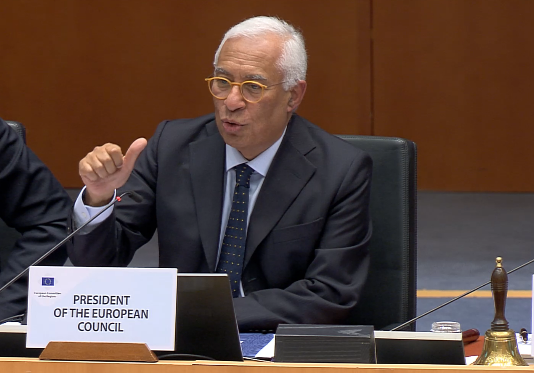Brussels – Not only Russia or Elon Musk’s rage on his social media X. The challenges are many, and as the European Union, “today we are being tested in unprecedented ways.” The President of the European Council, Antonio Costa, is more than aware of this, and he calls for accountability at the European Committee of the Regions meeting in plenary session. The EU is being tested “by geopolitics, by the economic situation, by a sense of disconnection between citizens and leadership,” Costa clarifies. On this last aspect, he wants to insist: “We need local and regional governments; we need the trust that can be built from the bottom up for our unity and cohesion.”
Regions and their administrators are explicitly asked to work to heal that sense of mistrust and disconnect that undermines the integration project in its foundations. “The European Union is experiencing a decisive moment,” the president of the European Council warns. It is up to local authorities to make a difference to counter populism, euro-skepticism, and dissatisfaction. “Local and regional governments understand the needs of their citizens, their challenges, and their hopes for the future,” Costa continues. Not only that, governors and mayors “adapt policies to local conditions.”

The fight against anything that questions Europeanism and the unity that Europeans need to better meet the challenges goes through the regions. Costa punctuates, “I count on the Committee of the Regions” to counter the disconnect between citizens and politics. I count on regional governments and citizens.” Then, the addendum: “The geopolitical context demands it.” A reference to a suddenly different and worse world, to alliances with traditional partners such as the U.S. being questioned and new alliances in the East.
To regions concerned that the next multi-year budget (MFF 2028–2034) may be designed to redefine roles and competencies in a more centralized sense, Costa offers support for the centrality of the territories: “Subsidiarity and multi-level governance are key principles of the European architecture. A way of saying that, for his part, there remains a commitment not to limit the role of the regions. “Subsidiarity implies that decisions are taken at the most needed level.” Hence, he concludes, “multi-level governance is the foundation on which we can build a stronger and more prosperous Europe for all.”
English version by the Translation Service of Withub![Il comitato europeo delle regioni riunito in sessione plenaria [Bruxelles, 19 febbraio 2025]](https://www.eunews.it/wp-content/uploads/2025/02/cor-plenary-726x375.png)



